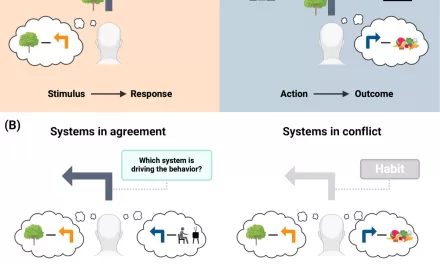SAN DIEGO – Regularly experiencing distressing dreams, such as nightmares, may do more than just disrupt sleep; it could be linked to accelerated biological aging and a significantly higher risk of dying prematurely, according to new research presented here.
The study, analyzing data from over 130,000 adults across four large studies in the United States and the United Kingdom, found that individuals reporting distressing dreams at least once a week showed signs of faster aging at both the cellular and whole-body levels. Furthermore, this group faced a threefold increased risk of death before the age of 70 compared to those experiencing bad dreams less frequently.
These associations remained significant even after researchers accounted for traditional risk factors like smoking, obesity, hypertension, as well as genetic, environmental, and lifestyle factors.
“It’s difficult to prove causation in observational studies, though you can definitely make an association,” stated lead investigator Dr. Abidemi Otaiku, a clinical research fellow at Imperial College London and affiliated with the UK Dementia Research Institute. He presented the findings on April 6 at the American Academy of Neurology (AAN) 2025 Annual Meeting.
The research team examined data from the Midlife in the United States (MIDUS) study, the Osteoporotic Fractures in Men Study, the Wisconsin Sleep Cohort Study, and the UK Biobank. Participants reported the frequency of distressing dreams (bad dreams without awakening and/or nightmares with awakening). Researchers assessed cellular aging via telomere length (from UK Biobank blood samples) and whole-body aging using epigenetic markers (from MIDUS blood samples). Mortality data was tracked for up to 19 years in the US cohorts and over 2 years in the UK Biobank.
Results indicated a clear trend: the more frequent the distressing dreams, the shorter the telomeres (indicating faster cellular aging) and the higher the epigenetic aging index (indicating faster whole-body aging).
Crucially, the link to premature mortality was stark. In the pooled US cohort, those with weekly distressing dreams had a hazard ratio of 3.03 for death before age 70. In the UK Biobank cohort, the hazard ratio was 2.65 for weekly occurrences.
“Strikingly, the effect size of frequent nightmares was greater than that of current smoking, obesity, and hypertension combined,” Dr. Otaiku noted during his presentation. He suggested that nightmares might act as chronic stressors, potentially leading to increased cortisol release, which can accelerate aging. Disrupted sleep itself is also known to have detrimental health effects.
This study builds upon Dr. Otaiku’s previous work linking distressing dreams to increased risks for Parkinson’s disease, dementia, and cognitive decline. Other research has connected such dreams to cardiovascular disease and diabetes. Approximately 4-10% of adults experience distressing dreams weekly.
Researchers also controlled for medications often associated with nightmares, such as certain antidepressants, antipsychotics, and beta-blockers, finding the link between nightmares and accelerated aging/mortality remained independent.
“The takeaway message is that people who have more nightmares are aging faster and dying sooner. Nightmares are more important than people realize, and clinicians should ask about them,” urged Dr. Otaiku.
Future research is needed to explore whether effectively treating distressing dreams could potentially slow aging and reduce the risk of premature death.
Disclaimer: This news report is based on findings presented at a medical conference. The research highlights an association and does not definitively prove causation between nightmares, aging, and mortality. This information should not be considered a substitute for professional medical advice, diagnosis, or treatment. Always seek the advice of your physician or other qualified health provider with any questions you may have regarding a medical condition.












